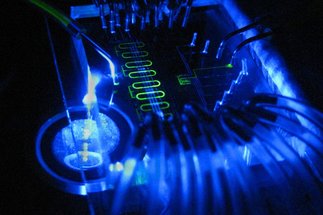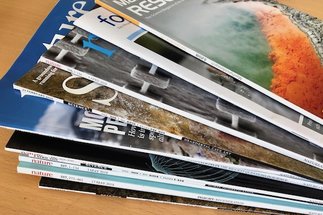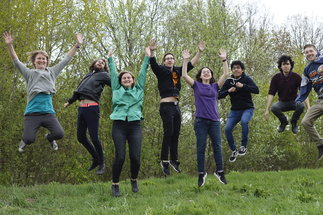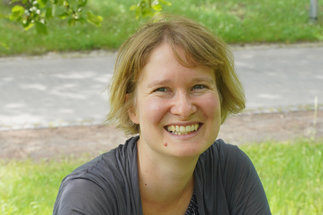Cell-free Synthetic Biology
Dr. Henrike Niederholtmeyer
As of 1st December 2022, Henrike Niederholtmeyer has started in a new position as Professor in Synthetic Biology at the TU in Munich. She and her lab will stay with us at the MPI-TM as guests until June 30, 2023, when her lab moves to TUM.
Research Area
Research in our group is motivated by the remarkable precision with which living organisms control when and where reactions happen. What are the characteristics of the molecular interactions that drive organization in time and in space? How much organization is necessary to integrate multiple complex biochemical functions? Can we learn from biology to design new life-like materials? To answer these questions we build and study artificial, biochemically simplified systems. We take a creative approach to engineering biology-inspired reaction systems using a combination of biological and synthetic components. We use and develop microfluidic tools, hybrid materials, and cell-free reaction systems.
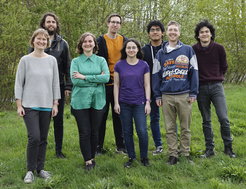
Selected recent publications
Banlaki, I., Lehr, F. X., & Niederholtmeyer, H. (2022). Microfluidic Production of Porous Polymer Cell-Mimics Capable of Gene Expression. Methods Mol Biol, 2433, 237-255. DOI
Bhattacharya, A., Niederholtmeyer, H., Podolsky, K. A., Bhattacharya, R., Song, J. J., Brea, R. J., Tsai, C. H.; Sinha, S. K.; Devaraj, N. K. (2020). Lipid sponge droplets as programmable synthetic organelles. Proc Natl Acad Sci U S A, 117(31), 18206-18215. DOI
Niederholtmeyer, H., Chaggan, C., & Devaraj, N. K. (2018). Communication and quorum sensing in non-living mimics of eukaryotic cells. Nat Commun, 9(1), 5027. DOI
Niederholtmeyer, H., Sun, Z. Z., Hori, Y., Yeung, E., Verpoorte, A., Murray, R. M., & Maerkl, S. J. (2015). Rapid cell-free forward engineering of novel genetic ring oscillators. Elife, 4, e09771. DOI
